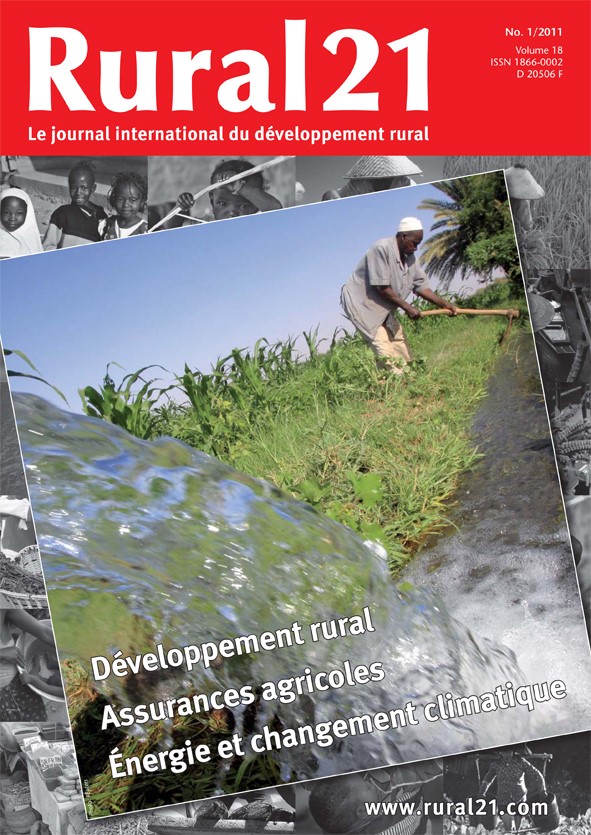DLG-Verlag was founded in 1952 as a subsidiary of DLG e.V. (Deutsche Landwirtschafts-Gesellschaft - German Agricultural Society) with its headquarter in Frankfurt/ Germany. The publishing company provides expertise for the agricultural and food sector.
With its subsidiaries Max-Eyth-Verlag and DLG-Agrofood Medien GmbH the DLG-Verlag offers books and magazines, as well as catalogs of the DLG's international DLG exhibitions.
Members:
Resources
Displaying 191 - 195 of 316Revue sur le Sommet des OMD: «les affaires continuent!» ne peut plus être le mot d?ordre
Le bilan des Objectifs du Millénaire pour le développement
(OMD) après dix ans est plus que mitigé. Dans l’ensemble, on n’enregistre que quelques progrès au niveau régional, par exemple en ce qui concerne l’éducation pour tous (OMD 2), la réduction de la mortalité infantile (OMD 4), et aussi la lutte contre la pauvreté (OMD 1a). L’échec fatal, c’est de n’être pas parvenu à réaliser l’objectif de réduction de la faim (OMD 1c) : la tendance initiale positive vers une réduction de moitié de la proportion de personnes souffrant de la faim s’est inversée dans le monde entier. Or,
Améliorer le diagnostic du paludisme en Guinée équatoriale
Aujourd'hui encore, le diagnostic du paludisme dépend presque exclusivement de la microscopie optique et, dans de nombreux pays en développement, il continue de souffrir de l'absence de programmes d'assurance qualité, en particulier dans les petits centres de santé périphériques en milieu rural.
Green genetic engineering in Africa
Although the commercial cultivation of genetically modified (GM) plants in Africa has been relatively modest until now, a number of research and development projects in this field are already operating in several African countries. These involve breeding drought-tolerant, pest-resistant or nutrient-enriched maize, or cassava varieties with greater disease and pest resistance.
Enhancing opportunities for local community development: Honey production in Mozambique
As part of its commitment to local community development in Mozambique, the Community Land initiative (iTC), a project financed by a group of European donors, is supporting part of a honey production chain in Mozambique, specifically in Sussundenga district, Manica province. The support consists of building capacity among local honey producers groups.
Guinea pigs: a guarantee of food security and a source of income in South Kivu, Democratic Republic of Congo
The years of war have led to a rapid decline in the nutritional status of people in the Democratic Republic of Congo. To cover their protein requirements, the rural population in the Kivu region in the east of the country have turned to raising guinea pigs. For many families these rodents are nowadays not just a vital element of their food security, but also an essential source of income.



